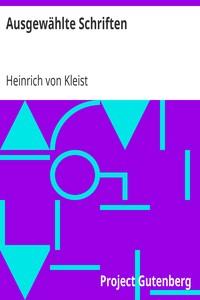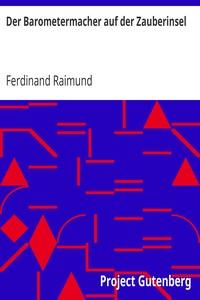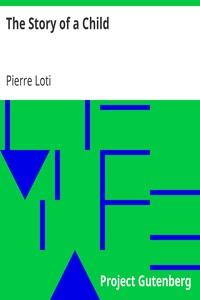Read this ebook for free! No credit card needed, absolutely nothing to pay.
Words: 58992 in 18 pages
This is an ebook sharing website. You can read the uploaded ebooks for free here. No credit cards needed, nothing to pay. If you want to own a digital copy of the ebook, or want to read offline with your favorite ebook-reader, then you can choose to buy and download the ebook.
Translator: Caroline F. Smith
THE STORY OF A CHILD
Translated by Caroline F. Smith
PREFACE There is to-day a widely spread new interest in child life, a desire to get nearer to children and understand them. To be sure child study is not new; every wise parent and every sympathetic teacher has ever been a student of children; but there is now an effort to do more consciously and systematically what has always been done in some way.
In the few years since this modern movement began much has been accomplished, yet there is among many thoughtful people a strong reaction from the hopes awakened by the enthusiastic heralding of the newer aspects of psychology. It had been supposed that our science would soon revolutionize education; indeed, taking the wish for the fact, we began to talk about the new and the old education and boast of our millennium. I would not underrate the real progress, the expansion of educational activities, the enormous gains made in many ways; but the millennium! The same old errors meet us in new forms, the old problems are yet unsolved, the waste is so vast that we sometimes feel thankful that we cannot do as much as we would, and that Nature protects children from our worst mistakes.
What is the source of this disappointment? Is it not that education, like all other aspects of life, can never be reduced to mere science? We need science, it must be increasingly the basis of all life; but exact science develops very slowly, and meantime we must live. Doubtless the time will come when our study of mind will have advanced so far that we can lay down certain great principles as tested laws, and thus clarify many questions. Even then the solution of the problem will not be in the enunciation of the theoretic principle, but will lie in its application to practice; and that application must always depend upon instinct, tact, appreciation, as well as upon the scientific law. Even the aid that science can contribute is given slowly; meanwhile we must work with these children and lift them to the largest life.
It is in relation to this practical work of education that our effort to study children gets its human value. There are always two points of view possible with reference to life. From the standpoint of nature and science, individuals count for little. Nature can waste a thousand acorns to raise one oak, hundreds of children may be sacrificed that a truth may be seen. But from the ethical and human point of view the meaning of all life is in each individual. That one child should be lost is a kind of ruin to the universe.
It is this second point of view which every parent and every teacher must take; and the great practical value of our new study of children is that it brings us into personal relation with the child world, and so aids in that subtle touch of life upon life which is the very heart of education.
It is therefore that certain phases of the study of child life have a high worth without giving definite scientific results. Peculiarly significant among these is the study of the autobiographies of childhood. The door to the great universe is always to the personal world. Each of us appreciates child life through his own childhood, and though the children with whom it is his blessed fortune to be associated. If then it is possible for him to know intimately another child through autobiography, one more window has been opened into the child world--one more interpretative unit is given him through which to read the lesson of the whole.
It is true, autobiographies written later in life cannot give us the absolute truth of childhood. We see our early experiences through the mists, golden or gray, of the years that lie between. It is poetry as well as truth, as Goethe recognized in the title of his own self-study. Nevertheless the individual who has lived the life can best bring us into touch with it, and the very poetry is as true as the fact because interpretative of the spirit.
It is peculiarly necessary that teachers harassed with the routine of their work, and parents distracted with the multitude of details of daily existence, should have such windows opened through which they may look across the green meadows and into the sunlit gardens of childhood. The result is not theories of child life but appreciation of children. How one who has read understandingly Sonva Kovalevsky's story of her girlhood could ever leave unanswered a child starving for love I cannot see. Mills' account of his early life is worth more than many theories in showing the deforming effect of an education that is formal discipline without an awakening of the heart and soul. Goethe's great study of his childhood and youth must give a new hold upon life to any one who will appreciatively respond to it.
A better illustration of the subtle worth of such literature, in developing appreciation of those inner deeps of child life that escape definition and evaporate from the figures of the statistician, could scarcely be found than Pierre Loti's "Story of a Child." There is hardly a fact in the book. It tells not what the child did or what was done to him, but what he felt, thought, dreamed. A record of impressions through the dim years of awakening, it reveals a peculiar and subtle type of personality most necessary to understand. All that Loti is and has been is gathered up and foreshadowed in the child. Exquisite sensitiveness to impressions whether of body or soul, the egotism of a nature much occupied with its own subjective feelings, a being atune in response to the haunting melody of the sunset, and the vague mystery of the seas, a subtle melancholy that comes from the predominance of feeling over masculine power of action, leading one to drift like Francesca with the winds of emotion, terrible or sweet, rather than to fix the tide of the universe in the centre of the forceful deed--all these qualities are in the dreams of the child as in the life of the man.
Free books android app tbrJar TBR JAR Read Free books online gutenberg
More posts by @FreeBooks

: Ausgewählte Schriften by Kleist Heinrich Von - Germany Fiction; Italy Fiction; South America Fiction; West Indies Fiction DE Prosa










